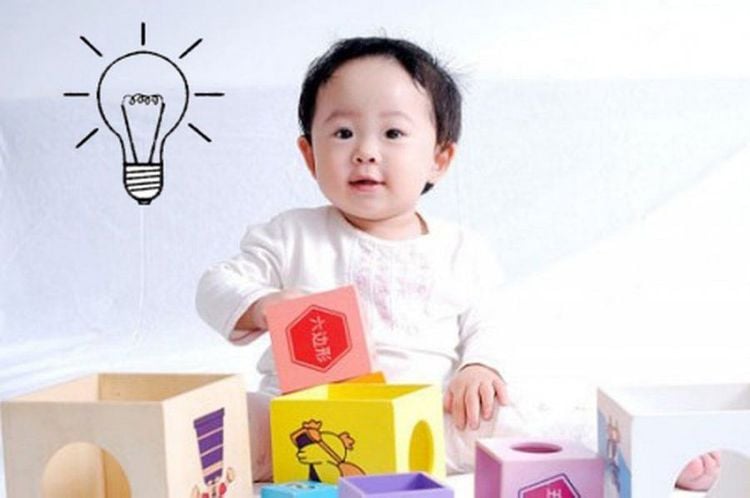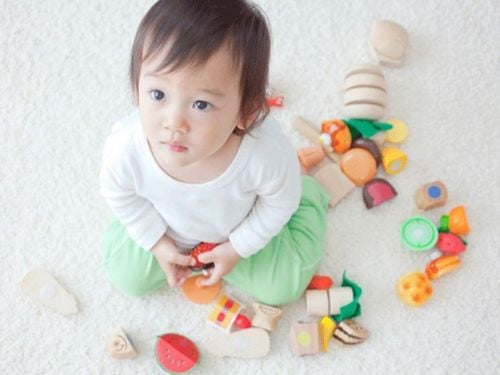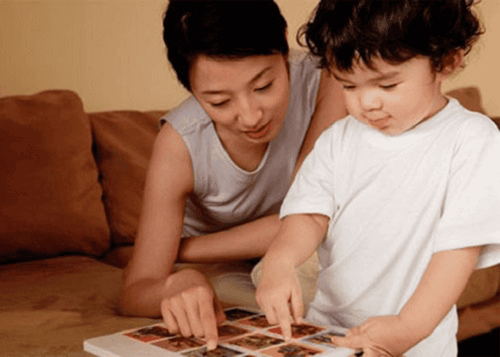This is an automatically translated article.
The article is professionally consulted by Master, Doctor Phan Ngoc Hai - Department of Pediatrics - Neonatology - Vinmec Danang International General Hospital
By the age of 29 months, babies often have a habit of telling the same story over and over again or singing their favorite song over and over again. This is one of the good habits that help children develop language as well as speech.
1. Physical development and movement
29-month-old babies are often very focused and persistent when doing something. This is essentially a repetitive activity of children at this age. Children performing repetitive actions will help them perfect motor skills more proficiently and smoothly. This may also explain why children are always trying to climb on furniture or rummage around in the house when their parents disagree.
At this age, the child's height and weight develop normally. So, how much does a 29-month-old baby weigh and how tall is a 29-month-old baby? Specific figures for children of this age range are:
Boys: Average weight - 13.3 kg; average height - 91.9cm Girl: Average weight - 12.9 kg; average height - 90.7 cm In addition, babies begin to develop motor skills, even children can be more active than their age. Children often love to dance and do all the action with their parents.
Some advice:
Remember that the child will constantly try to run around and will test his independent limits. So parents need to keep an eye on their children at all times, but also keep a specific distance to make them feel that they can do things. Running and jumping and some bumps like tripping and falling are all quite normal for children at this age. These factors are expected to occur at this stage and are also part of development at the 29-month-old milestones. If the child is younger than usual or has trouble with movement, parents should take the child to a doctor for examination and advice, so as to ensure the physical development of the child.

Trẻ 29 tháng tuổi thường rất tập trung và có tính bền khi làm một công việc gì đó
2. Cognitive development
At this stage of cognitive development, you will notice signs of self-discipline, such as: Baby insists on dressing himself, drinking from his own cup...
Baby is 29 months old at These children can understand many words, so they often express themselves verbally, although sometimes they cannot say complete and correct sentences.
Parents should encourage children's self-discipline. Parents will have to understand and sympathize with the mess or mess when the baby is alone, because it will help the child increase self-esteem as well as can make the child control himself and the environment. me.
This is also one of the stages to help children explore the world, so it remains the child's attraction and curiosity at all times. Children can see something that interests them and then they will run right there to look, and moreover they can use their hands to touch and touch. Moreover, children also start to check different things around the house, so parents should make sure their kids are safe because everything dangerous can be reached by them.
Some tips:
Encourage your child to become more independent, if he wants to dress himself or drink from a cup, then by all means let him do so. Letting your baby be independent from a young age can do wonders for her development, so be sure to encourage this type of behavior.

Ba mẹ nên khuyến khích sự độc lập tự giác của trẻ
3. Emotional development
Children at the age of 29 months often see an increase in tantrums. It is possible that children are prone to experiencing a lot of frustration. However, when this happens, it is also difficult for the baby to fully understand his feelings and may not know how to fully express himself.
The behaviors of a 29-month-old baby are related. Children can stay calm if you yourself stay calm and help your child turn his anger into other positive activities. There may be a few good ways to handle this situation, but acting calmly with children and explaining to children the behaviors they expect from them can both help make children's emotions more positive.
At this stage, the 29-month-old baby also begins to become more familiar with everything around her, and she will also make friends with other children she meets. However, parents should be vigilant to ensure the safety of the baby and always monitor the baby when in contact with others.
A few tips:
Try to avoid yelling or getting angry at your child whenever they throw a tantrum or if they refuse to eat the food you are giving them. Try your best to stay calm and patient, a good thing to remember is that parent's perseverance is the key to help children develop more fully. Speak calmly, but firmly, and make sure your child understands. Encourage your child to make friends with other children his or her age. Enroll your child in a play so he or she has the opportunity to interact with other children. If it seems like your child's behavior is getting out of control or if they're having trouble making friends or socializing, you should see a doctor. This age is important because you will begin to notice many different behavioral problems.
4. Language and speech development
By the time your baby turns 29 months old, he already knows a lot of vocabulary and he often likes to express himself even though his expression is not yet mastered at times.
However, this is also the stage when children begin to speak sweetly to others. Or sometimes, children can come up with games in their mind and sit alone in dialogue with the characters in their story.
At this stage, the child's ability to speak Vietnamese is already very good. Children may use imitating language to act out plays, or children may use words to make their parents feel excited and funny, or children may imitate television retelling stories they have seen, Or maybe sing a song. This is also a good habit to help children further develop their language and speech.
Children can read and match words they hear with pictures they see. This is an important activity in preparing children to practice reading and remembering vocabulary.
Some advice:
Parents should talk to their children constantly, talk during mealtimes and ask them about their day. This helps children practice speech and is also a good way for you to teach them to recognize new things around them. Try to include your child in your conversation so he feels included.

Ở giai đoạn này, khả năng trẻ nói tiếng việt đã rất tốt
5. Health and nutrition
Children at this age begin to be picky about foods, especially fruits and vegetables. This can be frustrating for parents who fear their child won't be getting the recommended daily nutrients. To deal with this situation, be patient and encourage your child to use up all the vegetables in their meals.
In addition, parents should limit snacks outside of meals to avoid the situation when children are full at meals and do not want to eat anymore. In addition, create a comfortable dining space for children to be more interested in their portions.
29-month-old babies need 5mg of elemental zinc/day to eat well, reach the correct height and weight and exceed the standard. Zinc plays a role in affecting most biological processes taking place in the body, especially the breakdown of nucleic acids, proteins... Organs in the body when zinc deficiency can lead to a There are a number of diseases such as neurological disorders, irritability, etc. Therefore, parents need to learn about the role of zinc and guide them to appropriate zinc supplements for their children.
In addition to zinc, parents also need to supplement their children with other important vitamins and minerals such as lysine, chromium, B vitamins,... errands.
Please regularly visit Vinmec.com website and update useful information to take care of your baby and family.
References: whattoexpect.com, sg.theasianparent.com














